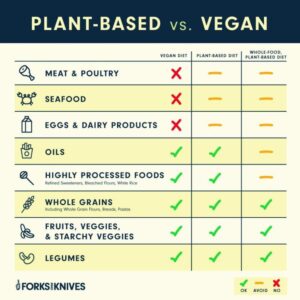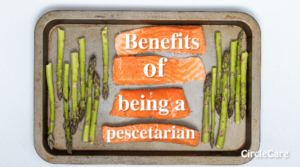In the realm of plant-based diets, a common question arises: do vegans eat fish or seafood? This intriguing topic sparks debates and challenges perceptions, inviting us to delve into the core principles and ethical considerations that define veganism.
Vegans adhere to a strict dietary regime that excludes all animal products, including meat, dairy, eggs, and honey. This unwavering commitment stems from ethical concerns about animal welfare and environmental sustainability. However, the consumption of fish and seafood raises questions about the boundaries of veganism, as these aquatic creatures are derived from animals.
Veganism
Veganism is a lifestyle that abstains from consuming any animal products, including meat, dairy, eggs, and honey. It emphasizes the ethical treatment of animals and the environmental impact of animal agriculture.
The talented British comedian Richard Gadd has established a solid net worth through his successful career. Richard Gadd’s net worth is a testament to his hard work and dedication to his craft.
Individuals choose to adopt a vegan lifestyle for various reasons, including concerns about animal welfare, the environmental sustainability of animal agriculture, and personal health benefits.
Reasons for Adopting Veganism
- Animal Welfare:Vegans believe that animals have the right to live free from exploitation and harm, and that consuming animal products contributes to their suffering.
- Environmental Sustainability:Animal agriculture has a significant environmental impact, contributing to greenhouse gas emissions, deforestation, and water pollution. Vegans aim to reduce their impact on the planet by choosing plant-based foods.
- Personal Health:A well-planned vegan diet can provide all the nutrients necessary for optimal health. Some studies suggest that vegan diets may be associated with reduced risks of certain chronic diseases, such as heart disease and type 2 diabetes.
Dietary Restrictions of Veganism
Veganism is a plant-based diet that excludes all animal products, including meat, dairy, eggs, and honey. Vegans consume a wide variety of plant-based foods, including fruits, vegetables, grains, legumes, and nuts.
Types of Foods Vegans Consume
- Fruits:Fruits are a good source of vitamins, minerals, and fiber. Some popular fruits include apples, bananas, berries, citrus fruits, and melons.
- Vegetables:Vegetables are a good source of vitamins, minerals, and antioxidants. Some popular vegetables include broccoli, carrots, celery, leafy greens, and tomatoes.
- Grains:Grains are a good source of carbohydrates, fiber, and protein. Some popular grains include brown rice, quinoa, oats, and whole wheat.
- Legumes:Legumes are a good source of protein, fiber, and iron. Some popular legumes include beans, lentils, and peas.
- Nuts:Nuts are a good source of protein, healthy fats, and vitamins. Some popular nuts include almonds, cashews, peanuts, and walnuts.
Foods Vegans Avoid
- Meat:Meat is the flesh of animals, including beef, pork, chicken, and fish.
- Dairy:Dairy products are made from the milk of animals, including milk, cheese, yogurt, and ice cream.
- Eggs:Eggs are the unfertilized eggs of chickens or other birds.
- Honey:Honey is a sweet liquid produced by bees from the nectar of flowers.
Fish and Seafood Consumption
Fish and seafood are common food items in many cultures, but they are not considered vegan foods. This is because fish and seafood are derived from animals, and vegans abstain from consuming any animal products.
Richard Gadd, the acclaimed comedian and actor, has amassed a substantial fortune through his successful career. With a net worth estimated in the millions, Gadd has established himself as a prominent figure in the entertainment industry.
Types of Fish and Seafood
Fish are cold-blooded vertebrates that live in water and have gills for breathing. There are many different types of fish, including salmon, tuna, cod, and tilapia.
Seafood refers to edible animals that live in the ocean, including shellfish, crustaceans, and mollusks. Examples of seafood include shrimp, crab, lobster, and oysters.
Exceptions and Variations
Veganism, as a dietary philosophy, typically excludes all animal products, including fish and seafood. However, there are certain variations and exceptions within the vegan spectrum that may allow for the consumption of these foods.
Pescatarians
Pescatarians are individuals who follow a mostly vegan diet but include fish and other seafood in their meals. This variation stems from the belief that fish are a healthier and more sustainable source of protein compared to other animal products.
Pescatarians typically consume a variety of fish, including salmon, tuna, and mackerel, while avoiding meat, poultry, and dairy.
Flexitarians
Flexitarians, on the other hand, are individuals who primarily adhere to a plant-based diet but occasionally consume animal products, including fish and seafood. This variation allows for greater flexibility in dietary choices, with the goal of reducing overall meat consumption while still enjoying the occasional animal-based meal.
Flexitarians may choose to incorporate fish into their diet for various reasons, such as health benefits, environmental concerns, or personal preferences.
Ethical and Environmental Considerations
Ethical and environmental concerns are significant factors in the vegan decision to abstain from fish and seafood consumption. Vegans believe that all animals, including marine life, deserve to live free from exploitation and harm. They reject the notion that humans have the right to use animals for food or any other purpose.
Environmental Impact
Fishing practices have a profound impact on the marine ecosystem. Overfishing, bycatch, and destructive fishing methods contribute to the depletion of fish populations, damage coral reefs, and disrupt the delicate balance of marine ecosystems. The fishing industry also contributes to greenhouse gas emissions, pollution, and habitat destruction.
Health Implications
Embracing a vegan lifestyle brings about a multitude of potential health benefits and risks that warrant careful consideration. While eliminating animal products can positively impact overall well-being, it’s essential to understand the potential consequences of excluding fish and seafood from the diet.
Vegans may experience improved cardiovascular health due to the absence of saturated fats and cholesterol found in animal products. Plant-based diets are typically rich in fiber, antioxidants, and phytonutrients, which have been linked to a reduced risk of chronic diseases such as heart disease, stroke, and certain types of cancer.
Nutrient Intake
However, excluding fish and seafood from the diet can lead to deficiencies in certain essential nutrients. Fish and seafood are primary sources of omega-3 fatty acids, which are crucial for brain health, heart health, and immune function. Vegans need to find alternative sources of omega-3s, such as flaxseeds, chia seeds, and algae supplements.
Additionally, fish and seafood are rich in vitamin B12, which is essential for red blood cell formation and nerve function. Vegans must consume fortified foods or supplements to ensure adequate vitamin B12 intake.
Overall Health
Overall, a well-planned vegan diet can provide all the necessary nutrients for optimal health. However, it’s crucial to pay attention to nutrient intake and consult with a healthcare professional or registered dietitian to ensure a balanced and nutritious diet.
Cultural and Social Aspects
The consumption of fish and seafood is deeply ingrained in many cultures worldwide, holding significant social and cultural significance. From coastal communities to inland regions, fish and seafood have played a vital role in traditional diets, religious practices, and communal gatherings.
However, the rise of veganism has challenged these established norms, prompting individuals to reconsider their dietary choices based on ethical, environmental, and health concerns. This has led to a growing intersection between veganism and cultural and religious practices.
Religious Beliefs and Veganism
Certain religious beliefs, such as Buddhism and Hinduism, promote vegetarianism or veganism as a means of adhering to principles of non-violence and compassion towards all living beings. For these individuals, the consumption of fish and seafood is not considered acceptable within their religious dietary restrictions.
Cultural Traditions and Veganism, Do vegans eat fish or seafood
Cultural traditions often revolve around the consumption of specific foods, including fish and seafood, during festivals, celebrations, and family gatherings. For some individuals, these traditions hold deep emotional and cultural significance, making it challenging to adopt a vegan lifestyle that excludes these foods.
Social Norms and Veganism
Social norms and peer pressure can also influence dietary choices. In communities where fish and seafood consumption is prevalent, individuals may feel pressure to conform to these norms, making it difficult to adopt a vegan lifestyle that deviates from the established social practices.
The Intersection of Culture, Religion, and Veganism
Navigating the intersection of culture, religion, and veganism requires sensitivity and understanding. For individuals who wish to adopt a vegan lifestyle while respecting their cultural and religious beliefs, it is essential to find creative and compassionate ways to adapt traditional practices without compromising their ethical values.
End of Discussion
The decision to include or exclude fish and seafood from a vegan diet is a personal one, influenced by a complex interplay of ethical, environmental, and health considerations. Understanding the motivations and implications of veganism empowers individuals to make informed choices that align with their values and aspirations.
FAQ Resource: Do Vegans Eat Fish Or Seafood
Can vegans consume fish oil supplements?
No, fish oil is derived from fish tissue and is not considered vegan.
Are there any exceptions to the vegan prohibition on fish and seafood?
Some vegan subgroups, such as pescatarians, may include fish in their diet, while others, like flexitarians, occasionally consume animal products.
What are the potential health implications of excluding fish and seafood from a vegan diet?
Vegans may need to pay attention to their intake of certain nutrients, such as omega-3 fatty acids and vitamin B12, which are commonly found in fish and seafood.




Leave a Comment